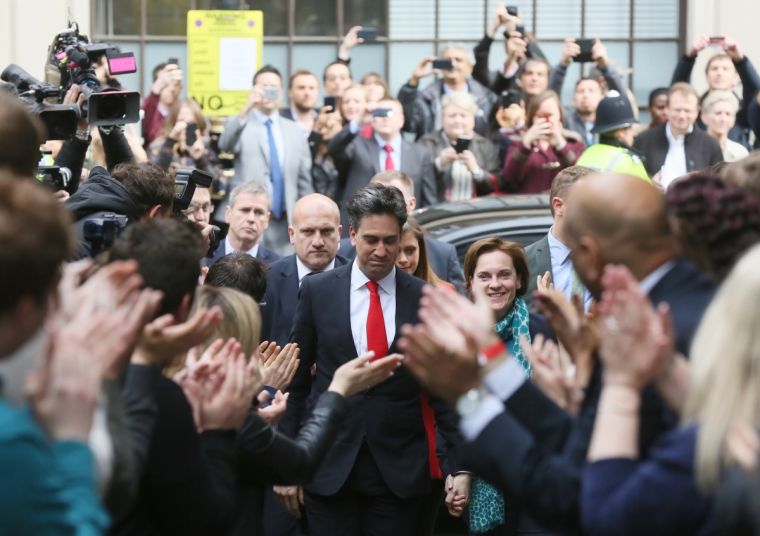After the election: Three things the Church should do now

"History to the defeated/May say alas, but cannot help or pardon," remarked the poet WH Auden. It's a bleak statement that gains its power from its unflinching take on how things really are.
There are plenty of people licking their wounds this morning and wondering whether history has anything to say to them. For those who have put their hearts and souls into the election, who genuinely believe that great things are at stake and that their way, rather than the other way, is how to meet the challenges ahead, there is not much comfort.
On the other hand, there are plenty of others who are delighted by the result. Some of them are hard-core activists who have skin in the game, as party loyalists and activists. Others have been convinced that a Conservative government is the devil they know, and are shy of making the acquaintance of other citizens of the infernal realms.
But in spite of the polarisation evident in this result, which sees the parties of the Left in Scotland and Wales trumped by the Right in England, there's common ground on which Christians of all persuasions can meet – and challenge the dominant media narratives in the name of the Kingdom of Heaven.
First, we can stop talking about victory and defeat. I wrote the preceding paragraphs quite carefully, avoiding the words except in the opening quotation. Everyone is talking about a Conservative victory and a Labour defeat, for obvious reasons: it's just what we do. But let's critique those expressions. The country has chosen one set of people to represent it rather than another. It's been more convinced by one set of arguments, more inclined to one philosophy, more attracted to one individual. It's not immediately obvious why defeat and victory are the only categories to describe this result.
This matters, because it counters Auden's bleak vision of the future. There is both help and pardon for the unchosen. They still have a contribution to make, a voice to be heard and a calling to serve. The language of defeat implies exclusion. Christians want to say that the unchosen remain part of the conversation. I believe this vision of grace-filled collaboration and respect is a Godly one.
Second, we can step back and carry on doing what we do. Yes, politics matter, because politics are about people. We can't stand aside from the big questions like how much money is spent on welfare, or defence, or the health service – and how that money is spent, how vulnerable people are helped and how the country is defended. But we make a terrible mistake if we identify our Christian faith with one political expression. Christianity is never defeated. Neither is the Church, because Church is fundamentally not about what it does, but about what it is: the body of Christ, the community of the redeemed, a colony of heaven. John Henry Newman, expected to be made a saint before too long, took as his personal motto "Cor ad cor loquitur" – "Heart speaks to heart". Whoever we voted for in the election, we are still citizens of the Kingdom of Heaven. It's in the transforming power of the Gospel in the human heart and the renewing of relationships in communities that the power of God is most truly seen.
Third, we can pray and work, intently and intelligently, for a better world. This election has been fought on a narrow and creaking platform: which party is best placed to ensure the country's continuing economic recovery? Britain's voters have spoken, though the different UK nations have said rather different things. But now the work begins, and Churches will need to focus faithfully on Jesus issues: the poor, the sick, the vulnerable. The 'victory' of the Right does not mean that Christians are absolved from responsibility, any more than a victory of the Left would have done. Under whatever system of government, the Church owes its first loyalty to Christ: under a democracy, we can really make a difference.
Tomorrow, May 9, is the anniversary of the final address given by the founder of the Salvation Army, William Booth. To a packed crowd of 7,000 Salvationists in the Royal Albert Hall, he said: "While women weep, as they do now, I'll fight; while children go hungry, as they do now I'll fight; while men go to prison, in and out, in and out, as they do now, I'll fight; while there is a poor lost girl upon the streets, while there remains one dark soul without the light of God, I'll fight, I'll fight to the very end."
What's changed? Not enough. The Church will always fight on.











